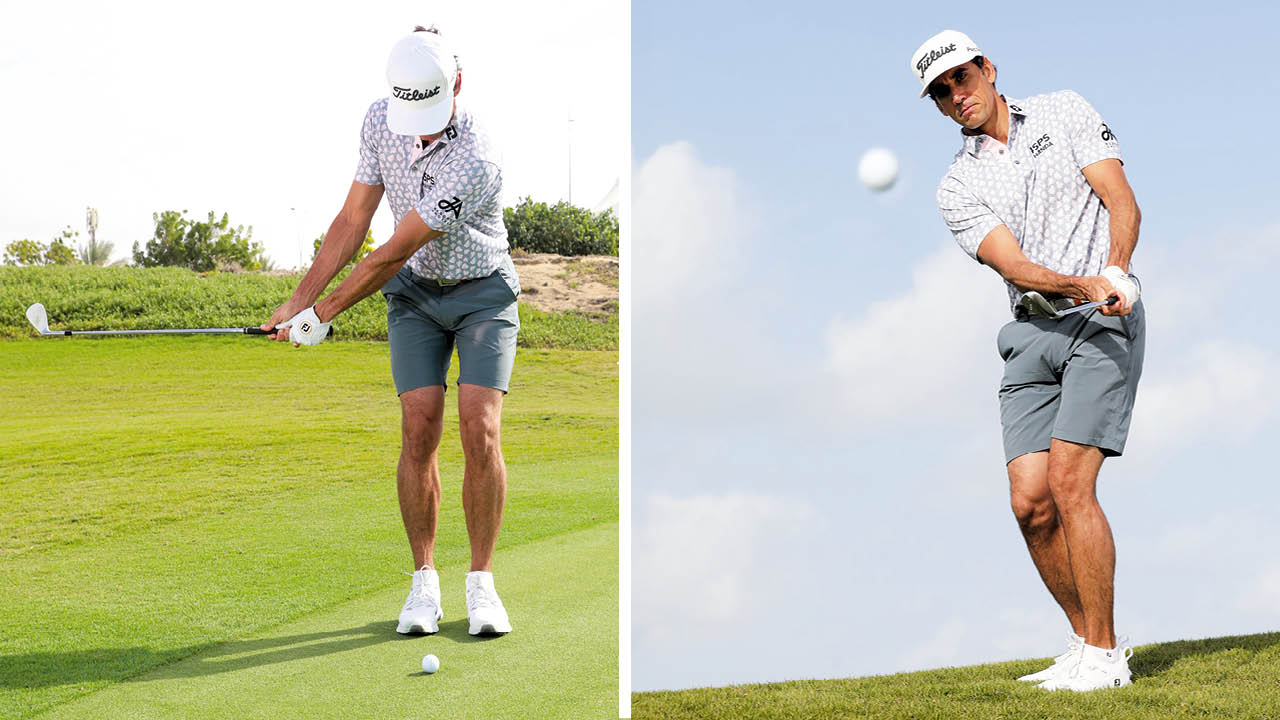
The 50-yard pitch shot can cause plenty of problems for amateur golfers, and is considered one of that hardest golf shots to get right. That's perhaps due to the fact it's not quite a full shot, and we often confuse ourselves trying to work out our swing length, tempo and club choice.
The main issue stems from doing too much with our hands, creating a lack of flow. When we over-accelerate or decelerate, and fail to match up the lengths of our backswing and follow-through, this will inevitably lead to inconsistency.
In this article, four-time DP World Tour Winner Rafa Cabrera-Bello shares his expert tips to master this tricky technique...
The 50-Yard Pitch Shot: Pizza Box Drill
This is a good thought for anyone who has a floppy, handsy pitching action. I call it the pizza box drill, as you make practice swings like you’re holding a book or a pizza box.
Set up with your palms face up as this gets the shoulder blades in the right position. Many club golfers get very tense over this shot and this encourages the shoulders to stay relaxed, which is key as we want the bigger muscles to control the shot.
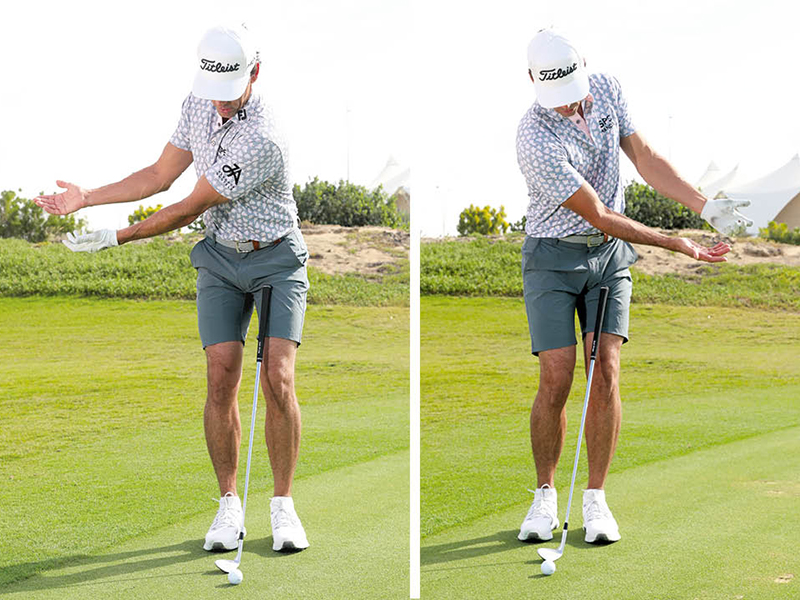
Some players feel it in their chest and some in their back. We’re all different, but the priority here is to make it feel like the takeaway is all very connected. The hands should not be moving independently – this is something that doesn’t promote a consistent impact and makes it really hard to gauge the right distance.
It also gets the elbows closer together, the back in the right posture and the shoulder blades in the right position. When you take the club back, feel like the big muscles in your back and core initiate the backswing, rather than flipping your hands. You are not doing anything quickly or abruptly – the 50-yard pitch should be an easy, smooth swing.
Let Gravity Take Over
Now with a club in your hands, take it back to halfway or an eight or nine o’clock position, with a straight left arm that would be pointing to the eight or nine on a clock face.
The crucial thing is that, once you get to this position, you’re almost letting gravity do its job coming down and you then just follow through. When doing this, make the follow-through a little longer than your backswing – this way you know you’ve accelerated through the shot.
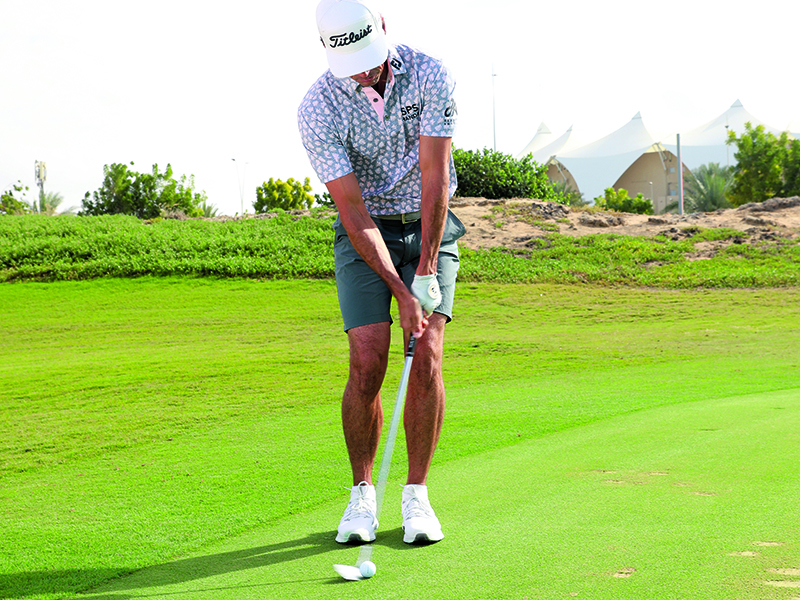
A common pitching mistake is to make a full swing and then decelerate. The brain subconsciously knows the backswing is too long and we then try to take distance off by slowing down on the downswing.
When practising, remember that 50 yards is a smooth shot and a shorter backswing than we think we need – you don’t need a full backswing. The key with the shorter backswing is that it allows you to accelerate. Once you find the right rhythm and swing length, you can hit these shots quite hard.
Controlling The Movement
A good checkpoint with your pitching is to have the feeling of your left shoulder opening up through the shot. The best players keep the clubhead outside their hands on 50-yard shots, or they match it to the sternum
When that breaks down, the arms have accelerated too much and this changes where the club is at impact. We want to keep the left arm attached and, as you move the club through impact, your left shoulder will go up and back.
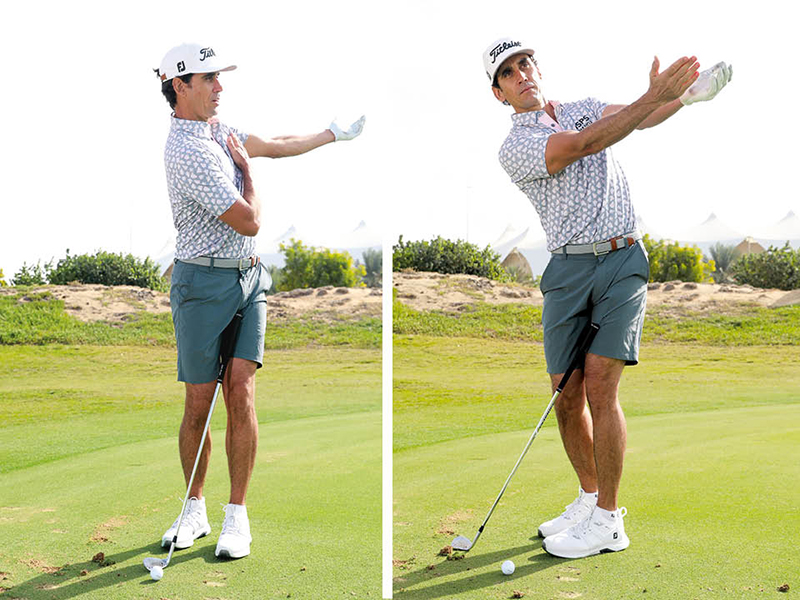
We want the arms and body to work together while keeping the clubhead outside the hands. The left shoulder can then move out of the way. Keep the movement attached and tight and have the grooves still looking back at you in your follow-through.
Again, remember it’s the body movement that is controlling what’s happening to the clubhead, not the hands. They’re not controlling it at all and, by getting the left shoulder up and back, that enables you to keep the club moving with you.
Rotate As One Unit
The most common fault in pitching is taking the club back on the inside, as in the main photo here. As soon as the shaft gets behind you, you’ll need a lot of rotation to get the clubface back to square. It also brings the strike more towards the heel, so you’ll get that digging-in feeling at impact.
The pizza box drill from earlier encourages you to lock your forearms and wrists, rotate with the body more and maintain body speed. We want three points - the sternum and the top and bottom of the club - to work together at the same speed.
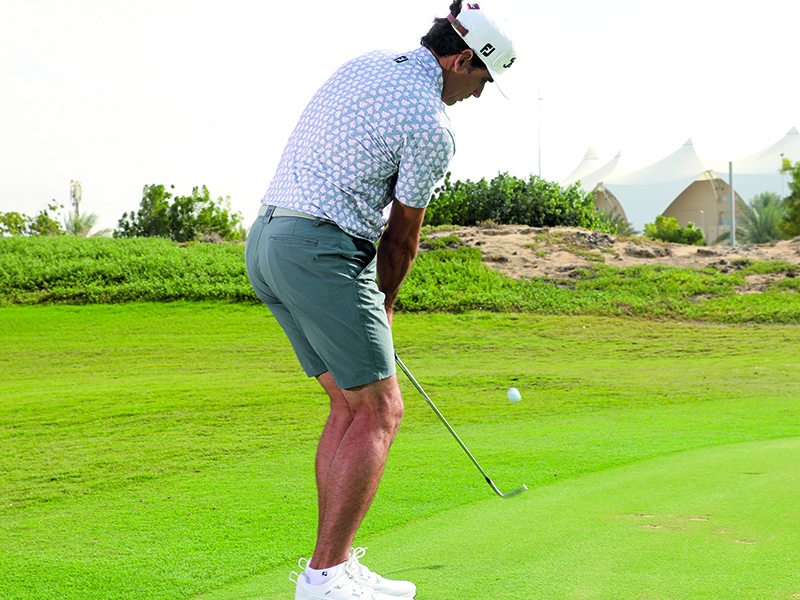
As soon as we add the wrists, we change how far that diameter is from the sternum. Adding wrist angle to the mix makes things very unreliable.
A lot of players make a conscious effort to keep the clubhead outside the hands. But the club, at set-up, is already outside the hands, so we’re not trying to create that. We’re just trying to maintain it, using the chest and shoulders to rotate back.







